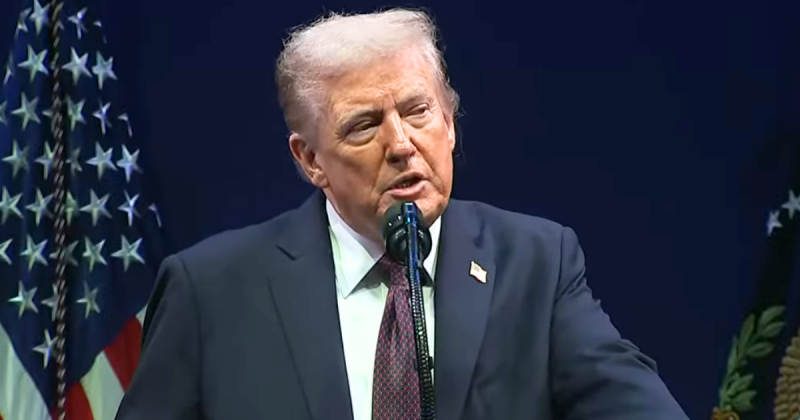A federal judge in Florida struck President Trump’s $15 billion defamation and libel lawsuit against the New York Times on Friday, ruling the complaint too lengthy and directing that it be significantly shortened.
The case, filed earlier this week, accused the newspaper of spreading falsehoods about Trump’s ties and political activities.
U.S. District Judge Steven D. Merryday said the filing did not meet procedural standards and must be resubmitted within strict page limits.
Merryday, who was appointed to the bench by President George H.W. Bush, found the original 85-page filing excessive given that it alleged only two counts of defamation.
In a four-page order, he noted the submission contained unnecessary evidence, extended arguments and legal citations that made it improper.
The judge wrote that a lawsuit must follow the Federal Rules of Civil Procedure, which require concise and straightforward pleadings.
He made clear that the complaint could not serve as a stage for politics or publicity.
“A complaint is not a megaphone for public relations or a podium for a passionate oration at a political rally or the functional equivalent of the Hyde Park Speakers’ Corner,” Merryday wrote.
His order struck the filing from the record but gave Trump’s team 28 days to file an amended version capped at 40 pages, not including signatures or attachments, The Gateway Pundit reports.
Trump’s attorneys signaled they will comply. A spokesperson for the president said the revised filing will proceed under the court’s direction.
“President Trump will continue to hold the Fake News accountable through this powerhouse lawsuit … in accordance with the judge’s direction on logistics,” the spokesperson stated.
The lawsuit, brought in Tampa federal court, names the New York Times and reporters, including Michael Schmidt.
Trump accuses the outlet of functioning as a “mouthpiece” for Democrats and claims its coverage gave then-Vice President Kamala Harris an unlawful advantage, the New York Post reports.
He described the paper’s reporting as equivalent to the largest illegal campaign contribution ever, citing its prominent placement of her endorsement on the front page
In his public remarks, Trump blasted The Times as part of a broader media establishment he believes has engaged in long-term efforts to discredit him.
On Truth Social, he said the outlet has waged a campaign of lies against his presidency, his family, and his political movement.
He compared the case to other legal battles he has pursued against media networks, which he said resulted in settlements after exposing false reporting.
The decision to file in Florida rather than New York was a deliberate one.
Trump has criticized the legal climate in New York and has increasingly looked to Florida courts for major filings.
Legal analysts note that the choice of venue could prove important if the case moves forward, as Florida judges may approach defamation claims differently than courts in the Times’ home state.
Merryday’s order ensures that the case will continue under stricter limits and that Trump’s attorneys must narrow their focus to essential claims.
Observers say the eventual outcome could shape how public figures pursue litigation against news outlets and may influence the broader debate over press freedom and accountability.

